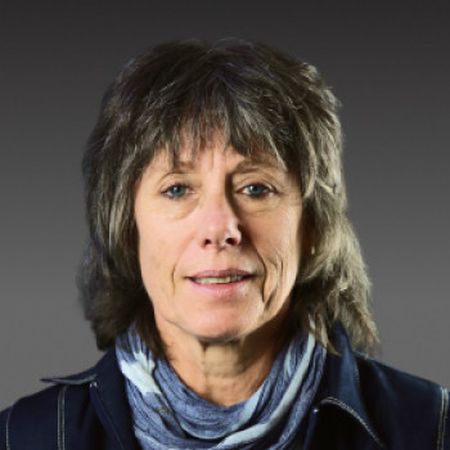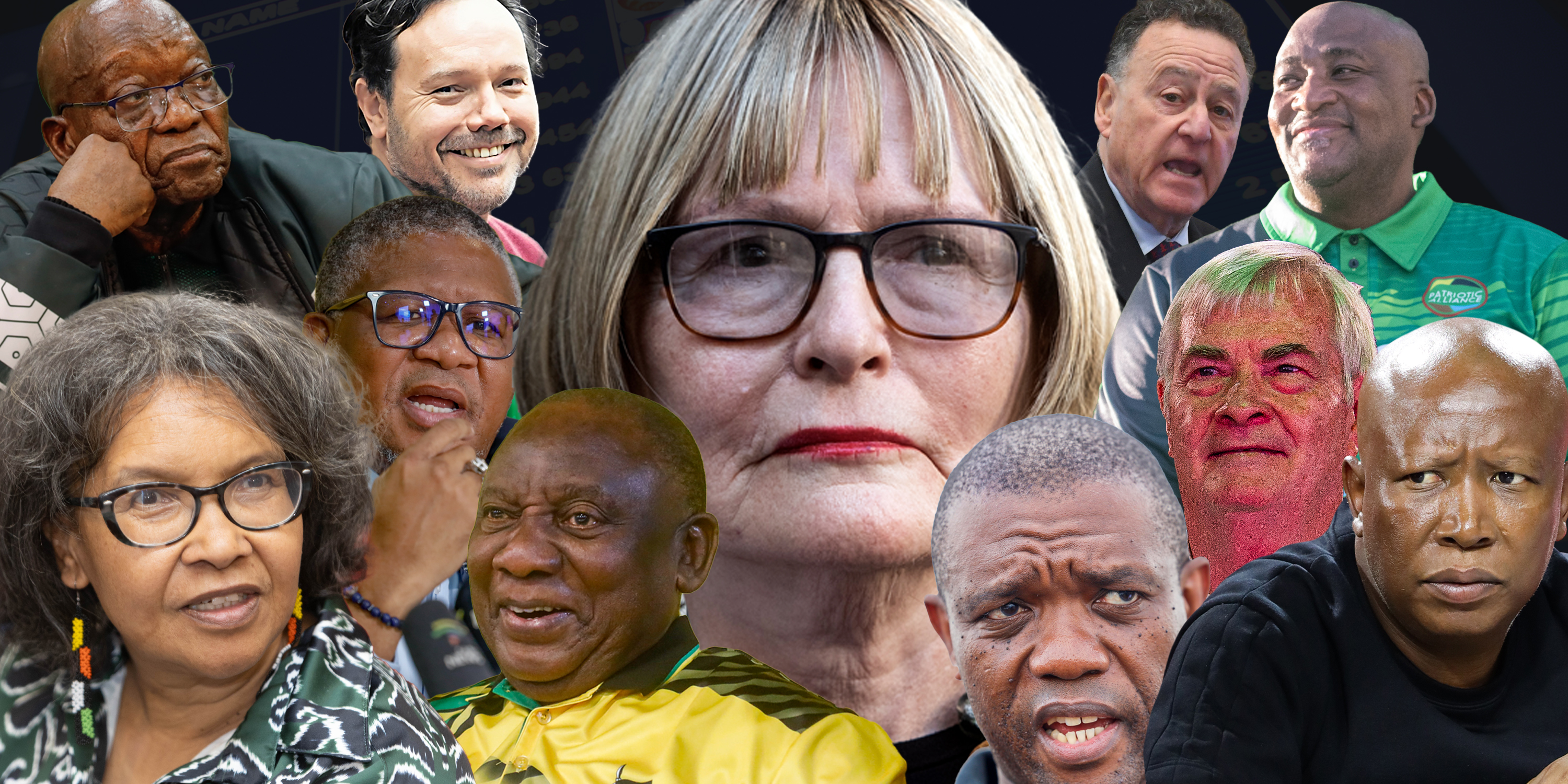This is the new country in which we find ourselves today. This is the upside of the downside currently being revealed at the Madlanga Commission of Inquiry and Parliament’s ad-hoc committee hearing into SAPS graft.
/file/dailymaverick/wp-content/uploads/2025/10/ThammWiener-copy.jpg)
With the keen eye of the veteran political chronicler, Wiener captures the rings of fire and skills required, and that came to the fore, in shaping a future democratic South Africa in just 14 days in 2024.
Then, in 29 days, parties that appeared to be at each other’s throats thrashed out a deal while the clock ticked.
Forceps delivery
While the Government of National Unity (GNU) might have been delivered “with forceps” – as Helen Zille described the moment – it happened during a 15-minute “comfort break” fortuitously demanded by the EFF’s Floyd Shivambu as the swearing-in of the new government was under way.
Shivambu is, in a way, the obstetrician/birth doula who helped deliver the GNU to South Africa.
/file/dailymaverick/wp-content/uploads/2025/10/Mandie-Wiener.jpg)
What is so unexpected and delightful to learn in Wiener’s book – perhaps because we are so accustomed to the noise, theatrics and cosplay of politicians in this age – is how Nelson Mandela’s “spirit of ’94” prevailed.
Tough but delicate – negotiation balanced with rigorous thought, foresight, painful truth-speaking and action.
Back-pocket skills
Individuals in the ANC and the DA, who had cut their teeth at those shape-shifting Codesa talks 30 years ago, had kept what they learnt in their back pockets.
We watch the leadership and expertise of people such as former DA leaders Tony Leon and Helen Zille nailing down every last detail, while John Steenhuisen has to cross a leadership Rubicon.
We encounter the party’s straight-talking former strategist Ryan Coetzee, flown in fresh from Dubai, and we bump into a Fikile Mbulula less of a buffoon than his public persona. The ANC’s calm, steadfast, pragmatic Phebe Potgieter-Gqubule and Nkenke Kekana’s nimble footwork, steeped in the ANC’s approach to negotiation.
Kekana, Wiener writes, described Zille as running the DA “like the general secretary of the Communist Party”, while the ANC’s approach was more “consensus-based”.
Hotels and boardrooms
Wiener has been a prolific and accomplished chronicler in several books, not only of South Africa’s murky, violent underworld, but also its equally opaque connections to law enforcement, with the snake eating its tail all the way into high office.
She takes us to the boardrooms, the hotels, in Joburg and Cape Town, and the spectacular Pallinghurst hospitality offered to the negotiators by businessman Adrian Enthoven. Wiener is inside the Results Operation Centre as the tallies come in, she is at the Inanda Club, Sandton, she is everywhere.
As a result, The Deal is a fast-paced chronicle of an extraordinary moment in South Africa’s political trajectory and belongs up there with those now-classics on the bookshelves that have captured South Africa’s history in the making.
Right here, right now
These are the writers who have had a ringside seat among key players and those behind the scenes.
South Africa has always turned up gifted chroniclers of the times: Alistair Sparks, Jacob Dlamini, Antjie Krog, Marc Gevisser, Njabulo Ndebele, Max du Preez, David Beresford.
While several critical books have been published this year, including Jeff Wicks’ backbreaking The Shadow State – Why Babita Deokoran had to die, there is the macro picture – the exploded view, which is far less bleak.
Read more: Babita Deokaran, investigative journalism, whistleblowing, and the cost of exposing corruption
And it is this usually out-of-bounds space where Wiener goes to make sense of it all.
Depth and colour
Without wanting to give anything away, Wiener has captured some marvellously detailed debates between the DA’s Tony Leon, Ryan Coetzee, John Steenhuisen and Helen Zille, seasoned politicians who have travelled a long path.
A description of a shouting match on a street in Cape Town between Leon and Zille over a technical matter about the importance of signing documents is a gem. There are many, many other backroom retellings that place the reader right there with Wiener as our sherpa.
Orania, oh Orania
There is a lovely account of the Freedom Front Plus and the dilemma the party faced when contemplating joining the GNU.
As part of the agreement, the ANC had asked the FF-Plus whether it would be possible to “use the expertise of the people of Orania” – an Afrikaner-only private town – to develop the region.
Pieter Groenewald, leader of the FF Plus told Wiener about the deal “and we said ‘it’s fine’. And it was then decided that there would be two contracts, the one affirming the independence of Orania and another of developing the region”.
Orania’s “diplomatic service” has, in fact, been visiting the amaBhele kingdom in the Eastern Cape since 2022. A “recognition and co-operation agreement” was signed between the royal family, near Nqanqarhu (previously Maclear), with AfriForum in February 2022. Why not do the same closer to home, the ANC seemed to be suggesting.
‘Sufficient consensus’
The notion of “sufficient consensus”, a uniquely South African concept born at the Codesa talks before 1994, again surfaced in 2024.
Wiener reflects on the actual meaning of “sufficient consensus” and how this would become a serious issue of contention between the DA and the ANC.
Quoting former Financial Times writer Patti Waldmeir’s 1997 Anatomy of a Miracle: The End of Apartheid and the Birth of the New South Africa, and an anecdote about Ramaphosa’s understanding of the concept:
“Before Codesa had even begun, during the talks preparing for its commencement, the two super-parties had concluded a little known and poorly understood deal which cut Inkhatha definitively out of the negotiating process,” wrote Waldmeir.
The formula had been thrashed out for how Codesa’s 19 parties would decide by “sufficient consensus”.
“Officially, this had been defined – by a process of circular reasoning – to mean the agreement of all those who needed to agree to avoid a breakdown.”
Ramaphosa had given Waldmeir a “far more blunt and accurate definition only minutes after the deal on ‘sufficient consensus’ had been struck,” she reflected.
“It means that, if we win and the National Party agree, everyone else can get stuffed…” said Ramaphosa.
But this time around, the DA had done its maths.
According to the party, sufficient consensus would be a decision that could be made by parties in the government who represented more than 60% of the seats in the National Assembly. And the only way of accomplishing this was to put the ANC and the DA together.
It is this kind of embroidery that Wiener has so craftfully woven through the more than 300-page book.
Last word for the loudest
Wiener captured Patriotic Alliance leader Gayton McKenzie’s view of Ramaphosa, an apt parting shot for this review.
“Let me tell you something that I have learned from Cyril Ramaphosa. Underestimate him at your peril. That is what I have learned. He is unapologetically a consensus man,” McKenzie told Wiener.
He went on to muse that “the ANC does not appreciate what Cyril Ramaphosa has done for them…”
“People in South Africa don’t understand power,” McKenzie added.
“To retain power after you have lost the leadership vote is leadership extraordinary. It is leadership. That’s what Cyril Ramaphosa did. He led them. He lost the election, but he did not lose the power”.
Just get the book. DM





 Illustrative image | Fébé Potgieter-Gqubule. (Photo: Gallo Images / Papi Morake) | MK party leader Jacob Zuma. (Photo: Gallo Images / Sharon Seretlo) | Ryan Coetzee. (Photo: X) | Helen Zille. (Photo: Gallo Images/Brenton Geach) | President Cyril Ramaphosa. (Photo: Gallo Images / Sharon Seretlo) | Tony Leon, former DA leader. (Photo: Gallo Images / Die Burger / Theo Jeptha) | Gayton McKenzie, Patriotic Alliance leader. (Photo: Gallo Images / Brenton Geach) | Rise Mzansi leader Songezo Zibi. (Photo: Gallo Images / OJ Koloti) | Leader of the Freedom Front Plus Dr Pieter Groenewald. (Photo: Gallo Images / Rapport / Elizabeth Sejake) | EFF leader Julius Malema. (Photo: Gallo Images)
Illustrative image | Fébé Potgieter-Gqubule. (Photo: Gallo Images / Papi Morake) | MK party leader Jacob Zuma. (Photo: Gallo Images / Sharon Seretlo) | Ryan Coetzee. (Photo: X) | Helen Zille. (Photo: Gallo Images/Brenton Geach) | President Cyril Ramaphosa. (Photo: Gallo Images / Sharon Seretlo) | Tony Leon, former DA leader. (Photo: Gallo Images / Die Burger / Theo Jeptha) | Gayton McKenzie, Patriotic Alliance leader. (Photo: Gallo Images / Brenton Geach) | Rise Mzansi leader Songezo Zibi. (Photo: Gallo Images / OJ Koloti) | Leader of the Freedom Front Plus Dr Pieter Groenewald. (Photo: Gallo Images / Rapport / Elizabeth Sejake) | EFF leader Julius Malema. (Photo: Gallo Images)